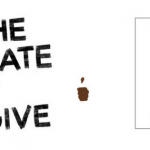What do people mean, exactly, when they refer to ‘biblical parenting’? The Bible isn’t a parenting manual. It was never written or marketed as such—it’s a collection of books written by various authors, from different time periods, in a variety of genres, with ambiguous and often conflicting narratives. So what does it mean to parent according to the Bible?

Image: Unsplash
Does it mean we follow the example of parents in the Bible? Should we emulate Lot the father who offers his virgin daughters up for gang rape? Or traumatize our son on an altar like Abraham, the father of all fathers? Or how about Joseph’s Dad, who by showing blatant favoritism to Joseph landed him exiled into slavery?
Okay, so there are flawed human characters in the Bible, what about Jesus? Does biblical parenting mean we parent like Jesus? But Jesus wasn’t a parent. He welcomed and blessed children, that’s certainly respectable, but anyone who is a parent knows the difference between caring for children and parenting our own children. There are particular parenting needs that aren’t specifically addressed by Jesus in the Bible.
There simply isn’t a coherent structure in which biblical parenting can be contained, given the complexities of the set of Scriptures we are given. There IS NO SUCH THING as biblical parenting.
And yet, there exists literature and institutions and media empires set up to propagate biblical parenting. What does Biblical Parenting really mean?
This: authority and control.
Academic author David Congdon astutely observes that American evangelicalism has an authority problem. He says Catholics have a magisterium, and Anglicans have liturgy, but evangelicals have only a few doctrinal assertions and the Bible. Evangelicals are not willing to address the ambiguities of Scripture, because they need to hold on to the Bible in order to wield authority and control.
If you survey the biblical parenting literature, you will find they prooftext and lift certain verses out of the Bible to use as the prevailing guide for parenting. Examples include:
- Proverbs 22:6, train up a child in the way he should go,
- Proverbs 13:25, whoever spares the rod hates their children,
- Titus 2, encourage and rebuke with authority,
- 1 Samuel 2:22-25 more rebuking with authority,
- Heb 12:11 Unpleasant discipline.
I’m not saying parents who ascribe to biblical parenting don’t love their children, I trust they do. But they let their fears triumph over their love. They fear children who disobey. They fear the influences of the secular world. They fear their children enduring pain and suffering because they do not abide by the law of the Lord. So they hold tightly to these rules, in the hopes that if they can institute, set up a system in which to structure their family lives, they can control the results.
But our children cannot be manufactured, and the hard news is that we cannot control their human struggle regardless of how much we’d like to protect them. If we insist upon using the Bible as the authority of God to lord over our children, we are reducing them to less than human beings who can be manipulated under our control. And as long as they are small and vulnerable to our care, it’ll work for a time. But as soon as they grow into their own adolescent/adult autonomy, they will make their own decisions, and many of them are leaving the faith. Case in point: consider this recent headline, College Freshman are Less Religious Than Ever.
The other alternative to the children leaving the faith altogether, is that they are raised to behave within the status quo and continue perpetuating authority and control. It’s worth remembering these are the kinds of people Jesus rebukes most severely in the Bible.
Biblical parenting ends up producing the villains of the Book.
Ultimately, Biblical Parenting is about the parent wielding control over the children and is not child-centered. If we want our children to be treated as full human beings worthy of love, respect, and autonomy, we have to give up our authority over them. When they are free to exercise their own particular humanity, they will also have the best chance of cultivating healthy spirituality.
The best kind of parenting is the kind that loves without control, which means parenting that stays as far away from “Biblical” as possible.
Get a free download of a Christian parenting manifesto that helps us guide children into healthy spirituality + the most helpful parenting resources with progressive values.












